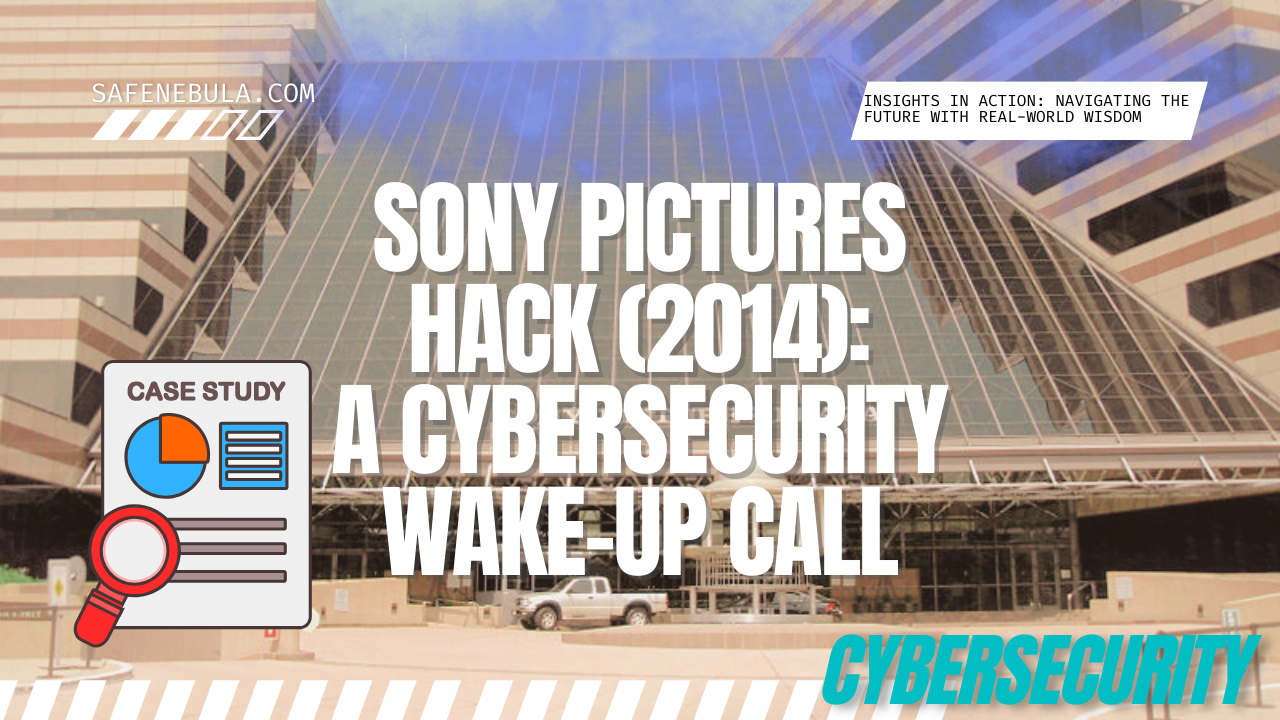The cyberattack on Sony Pictures Entertainment in November 2014 stands as one of the most notorious cybersecurity incidents in history. Attributed to North Korean hackers, allegedly in response to the planned release of “The Interview,” a film that depicted a fictional assassination attempt on North Korea’s leader, the attack unveiled the destructive potential of cyber warfare used as a tool for geopolitical conflict. This case study explores the timeline of the Sony Pictures hack, its repercussions, and the invaluable lessons it imparted on the importance of cybersecurity in safeguarding intellectual property and sensitive corporate data.

Background and Intentions
The Sony Pictures hack, orchestrated in November 2014, was a high-profile cyberattack that captured global attention. Attributed to a group known as “Guardians of Peace,” the attack was later linked by the FBI to North Korean hackers. The primary motivation behind the cyberattack was believed to be North Korea’s retaliation against the release of “The Interview,” a Sony Pictures comedy that depicted a fictional plot to assassinate North Korean leader Kim Jong-un. This incident underscored the extent to which state-sponsored actors could leverage cyberattacks to influence international discourse and exert geopolitical pressure.
The Spread and Impact
The attack unfolded with the deployment of destructive malware that rendered thousands of Sony Pictures’ computers inoperable, displaying threatening messages. In the days that followed, the hackers released vast quantities of confidential data, including personal information of employees and their families, sensitive emails between executives, salary information, and several unreleased movies. The leak of internal communications led to a series of controversies, damaging the studio’s reputation and leading to high-profile apologies and executive departures. Financially, Sony Pictures suffered significant losses not only due to the immediate disruption of their operations but also through the damage to their intellectual property and subsequent legal challenges.
Legal and Social Repercussions
Legal Actions:
Following the attack, Sony Pictures faced legal action from employees and partners for failing to protect their personal and financial information. These lawsuits emphasized the legal obligations of corporations to secure sensitive data and the potential consequences of cybersecurity negligence.
Social Impact:
The hack prompted a widespread debate over cybersecurity, freedom of expression, and the appropriate response to cyberterrorism. The decision to initially cancel “The Interview”‘s release, followed by its limited distribution, sparked discussions on censorship, the role of corporations in national security, and the power dynamics between nations in the digital age.
Policy and Industry Changes:
In response to the attack, there was a concerted effort within the entertainment industry and beyond to bolster cybersecurity defenses. Companies began to invest more heavily in cyber threat intelligence, employee training, and incident response capabilities. The incident also influenced policy discussions, leading to calls for stronger cybercrime legislation and improved international cooperation on cybersecurity issues.
The Sony Pictures hack remains a defining moment in the history of cybersecurity, illustrating the complex interplay between corporate security practices, international relations, and the legal and social frameworks governing digital information. It highlighted the need for robust cybersecurity measures, the importance of crisis management and communication, and the ongoing challenges in balancing digital security with free expression and privacy rights.

Timeline of the Sony Pictures Hack
Late November 2014
- Initial Breach: Employees at Sony Pictures find their computers inoperable, displaying a skull image posted by a group calling themselves “Guardians of Peace” (GOP). The group claims responsibility for the hack.
Early December 2014
- Data Leak: Sensitive data, including personal information of employees, internal communications, and unreleased films, begin to surface online.
- Threats and Demands: The hackers demand the cancellation of “The Interview”‘s release, threatening further releases of stolen data.
Mid December 2014
- Escalation: Threats escalate to terrorist attacks on cinemas screening the film, leading to major theater chains deciding against showing the movie.
- FBI Involvement: The FBI formally accuses North Korea of orchestrating the attack, citing the attack’s sophistication and similarities to other North Korean cyber operations.
Late December 2014
- Limited Release: In response to public outcry and discussions around censorship, Sony Pictures opts for a limited release of “The Interview” in independent theaters and online platforms.
Impact and Key Lessons Learned
Cybersecurity as a Corporate Imperative: The hack underscored the vulnerability of corporate entities to targeted cyberattacks, emphasizing the need for robust cybersecurity measures to protect intellectual property and sensitive data.
Geopolitical Weaponization of Cyberattacks: The incident highlighted how cyberattacks can serve as instruments of geopolitical conflict, with state-sponsored actors targeting companies over political disagreements.
Crisis Management and Communication: Sony’s response to the hack revealed the importance of having a crisis management plan that includes not only remediation steps but also transparent communication strategies to manage public perception and maintain stakeholder trust.
Collaboration with Law Enforcement and Cybersecurity Experts: The investigation into the hack demonstrated the value of collaboration between corporate entities, law enforcement, and cybersecurity firms in responding to and analyzing cyber threats.
Enhanced Industry Standards and Practices: The attack led to a reassessment of security practices across the entertainment industry and beyond, prompting organizations to adopt stricter cybersecurity protocols and more rigorous data protection measures.
Conclusion
The Sony Pictures hack of 2014 was a watershed moment in the field of cybersecurity, highlighting the extensive damage cyberattacks can inflict on corporations and the broader implications for national security and international relations. It served as a stark reminder of the critical need for advanced cybersecurity defenses, the importance of preparedness and resilience in the face of cyber threats, and the ongoing challenge of protecting against the ever-evolving tactics of cyber adversaries. The lessons learned from this incident continue to resonate, guiding cybersecurity strategies and policies to mitigate the risks of future cyberattacks.

